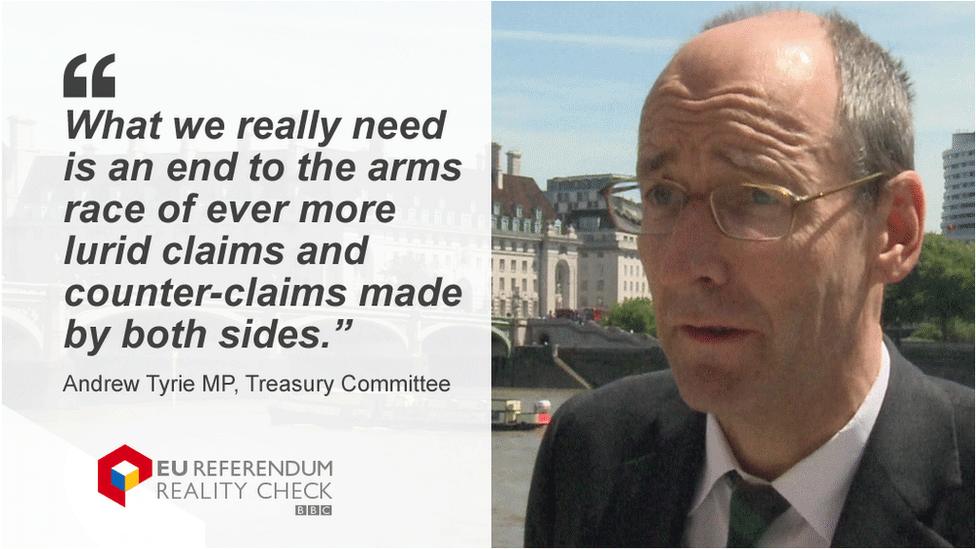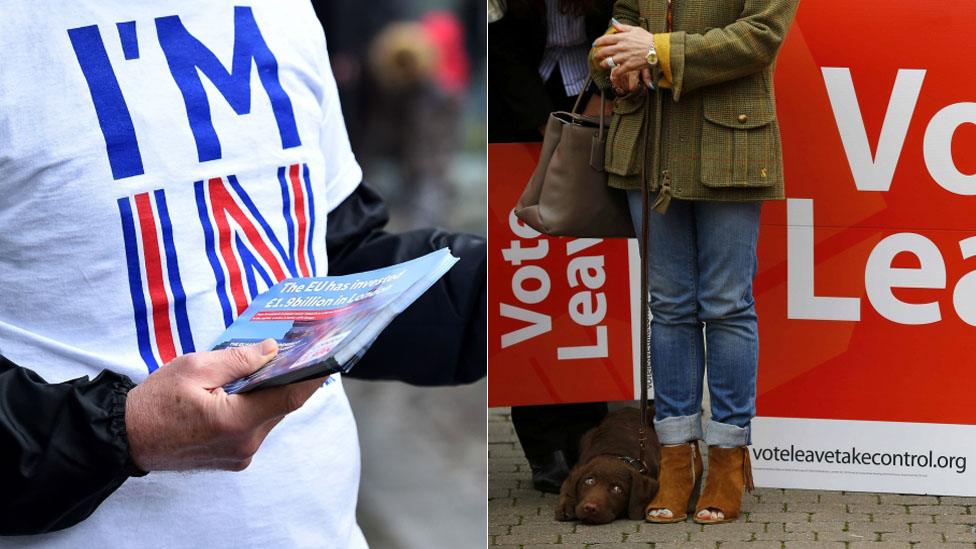Reality Check: Have the campaigns been fair with figures?
- Published

The Claim: The two sides in the EU referendum campaign have been accused of peddling "misleading" figures and "implausible assumptions" by a committee of MPs.
Reality Check verdict: There is growing acceptance that both sides could be clearer about the figures they're using to support their arguments.
The Treasury Select Committee has criticised both sides in the EU Referendum campaign for peddling "misleading" figures and "implausible assumptions".
Its chair, Andrew Tyrie, told BBC News: "What we really need is an end to the arms race of ever more lurid claims and counter-claims made by both sides."
The Reality Check team has been keeping an eye on how both sides have been using numbers throughout the campaign. Here are a few from each side.
Andrew Tyrie cited the claim that the UK sends £350m a week to Brussels and it could be spent on the NHS instead as particularly problematic.
The claim ignores the rebate, which means that amount of money is not sent to Brussels each week. Also, some of the money is returned to the UK to be spent on things like farming subsidies and regional development, and Leave campaigners have not suggested these payments should stop.
The claim, which appears on the Vote Leave bus, has also been criticised repeatedly by the UK Statistics Authority. Its chair, Sir Andrew Dilnot, said on Friday, external he was "disappointed" the figure was still being used.
You can read the full Reality Check on the £350m claim here. And there is a discussion of why all the money could not be spent on the NHS here.
Another claim criticised was the government's suggestion that leaving the EU could cost your family £4,300.
The committee pointed out that this was confusing GDP per household with household income and expressed disappointment that so much emphasis had been placed on this figure.
You can read Reality Check's take on the £4,300 claim here.
The committee's report also said: "It is misleading to claim, as some campaign groups continue to do, that three million jobs are dependent on EU membership.
The Reality Check team covered the Prime Minister saying this, and also David Milliband using a variation on it.
The committee criticised the claim that the Common Agricultural Policy costs £400 per household per year as being based on out-of-date research.
It also questioned how much of that money could be saved by leaving the EU.
You'll find discussion of the figure as part of this selection of claims made by Boris Johnson.
The committee criticised the Treasury's failure to get its analysis on the short-term consequences of leaving the EU to it in time to include it as part of the report.
It described the delays as "highly unsatisfactory" and inconsistent with commitments made to the committee by the Chancellor.
The Vote Leave claim that the cost of EU regulations was £33.3bn a year or £600m a week was described in the report as a "tendentious representation of the research on which it is based".
The figure, which came from Open Europe, was an assessment of the cost of complying with the 100 most "burdensome" regulations.
You can read more about the £600m claim on regulation here.
Andrew Tyrie told BBC News that the report had been accepted unanimously by the committee, despite it containing prominent figures from both sides of the debate.
"This is unanimous - they accepted what's in the report," he said.



- Published27 May 2016

- Published22 February 2016
